Why Does My Dog Have a Strange Smell? Understanding and Tackling Odour in Dogs
Dogs naturally have their own unique scent, which many pet parents/guardians find endearing. However, when your dog develops an unusual or unpleasant smell, it can be a sign of underlying issues. Let’s explore the reasons behind these odours, what they mean, and how to address them effectively.
Do Dogs Smell?
Yes, like us dogs have a natural scent due to their skin, coat, and secretions. This smell is typically pleasant, mild and varies by breed, diet, and health. However, certain factors can cause dogs to smell stronger or develop an unpleasant odour.
Why Do Dogs Smell of Dog?
The normal smell of a dog comes from the natural oils produced by their skin and the microorganisms living on their coat (just like humans having distinct smells). These oils are essential for maintaining a healthy coat, while the microorganisms help balance the skin’s microbiome. Issues arise when this balance is disrupted.
Common Causes of "Dog Smell":
- Sebaceous Glands: These glands produce oils that can trap dirt and odour.
- Microorganisms: Bacteria and yeast thrive on the skin, especially if the skin microbiome becomes imbalanced.
- Environment: Heating in the house, human house dust mites (higher numbers found in carpeted houses), rolling in dirt, or even water (excess moisture can feed yeast) can add layers of odour.
Why Does My Dog Have a Funny Smell?
When your dog’s odour changes or intensifies, it may be due to:
- Overwashing: Frequent bathing with harsh shampoos (especially those containing SLS) strips the skin of protective oils, allowing yeast to proliferate.
- Medicated Products: Overuse of medicated shampoos can wipe out beneficial bacteria.
- Dietary Issues: Poor nutrition or food intolerances can lead to imbalances in the skin microbiome.
- Genetics or Age: Older dogs or certain breeds may naturally produce stronger scents.
Why Does My Dog Have a Strange or Unpleasant Smell?
A strange or "funny" smell in your dog could indicate an overgrowth of yeast or bacterial infection. Yeast, for example, often creates a "popcorn-like" odour, which can worsen in moist areas such as the underbelly, armpits, or between toes.
Contributing Factors:
- Moisture Retention: Dogs with thicker coats or those exposed to wet environments are more prone to yeast overgrowth.
- Skin Conditions: Allergies, defective skin barriers, or improper grooming practices can exacerbate odours.
Do Old Dogs Smell More?
Yes, older dogs often develop stronger odours due to hormonal changes, slower grooming habits, and age-related health issues such as skin infections or dental problems. Ensuring proper grooming and addressing any health concerns can help manage these odours.
Should Dogs Smell?
A mild doggy scent is normal and healthy. However, any unusual, persistent, or overpowering smells should not be ignored. They can signal underlying issues, such as defective skin barrier, infections, dietary problems, or imbalances in the skin microbiome.
How to Manage and Reduce Dog Odours
If your dog has a yeasty or unpleasant odour, maintaining their skin microbiome is essential. Overwashing or using the wrong products can worsen the problem. Here’s a simple routine using Lavender Skin Repair Serum or Rose Serum to tackle odours naturally:
Steps to Reduce Odours:
- Spray the Serum: Apply a few pumps to your hands and rub your palms together.
- Massage Gently: Massage your dog’s underbelly, armpits, and the back of the tail. Avoid the eyes and genital areas.
- Brush Thoroughly: Work the serum into the coat to nourish the skin and restore its balance.
- Repeat Regularly: Use weekly or monthly, depending on the severity of the odour.
The Importance of Protecting Your Dog’s Scent Identity
Your dog’s natural scent is part of their identity and plays a role in communication. Overuse of harsh shampoos or frequent bathing disrupts this balance, leading to odours and other skin issues. Opting for gentle, microbiome-supporting products like serums ensures that your dog smells fresh without losing their unique scent.
By maintaining your dog’s skin health and addressing odours early, you can keep them smelling pleasant and feeling comfortable.
Related Articles:
- Why It Is Important to Protect Your Pet’s Scent Identity
- Tips for Grooming Dogs with Sensitive Skin

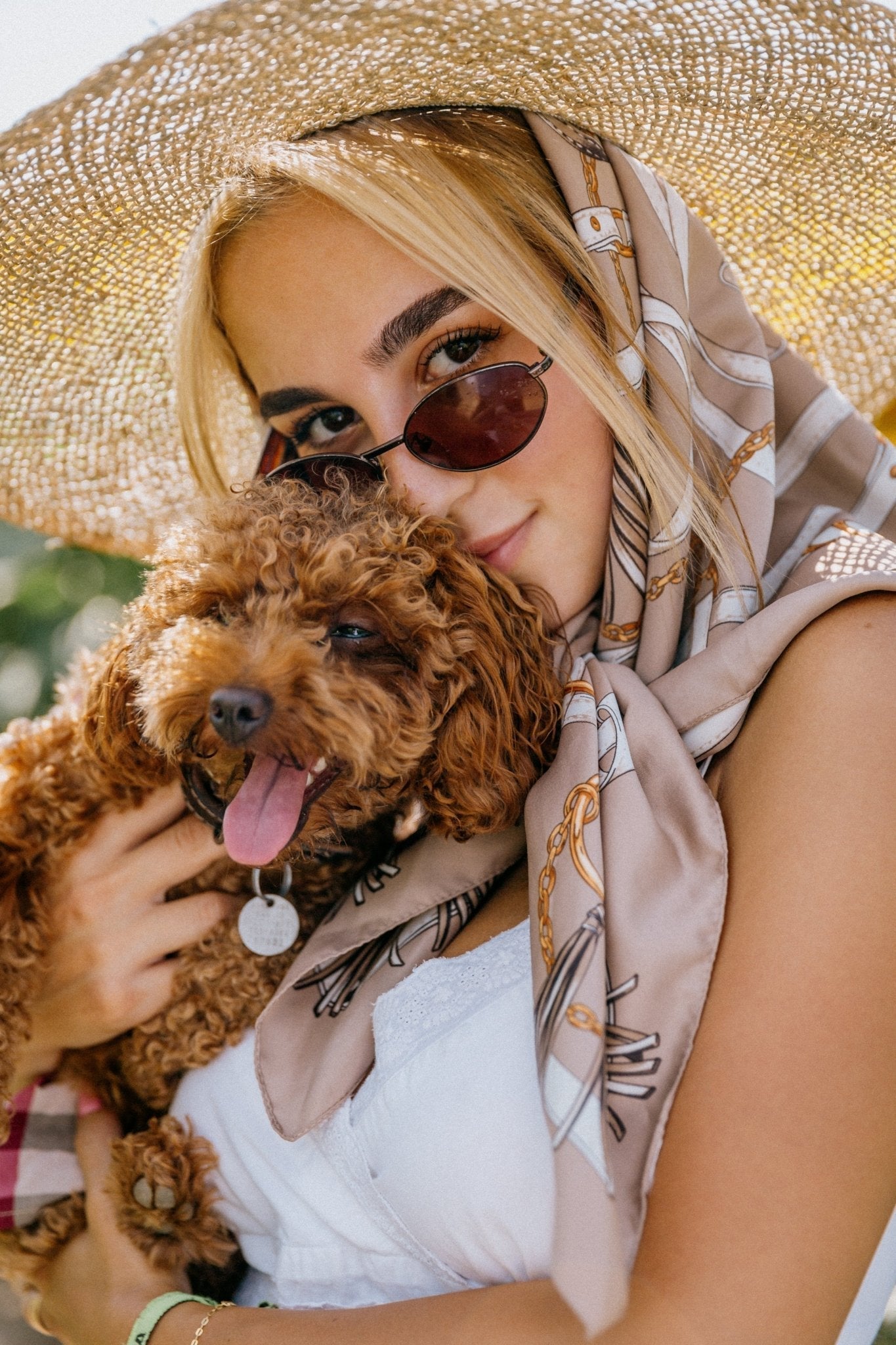
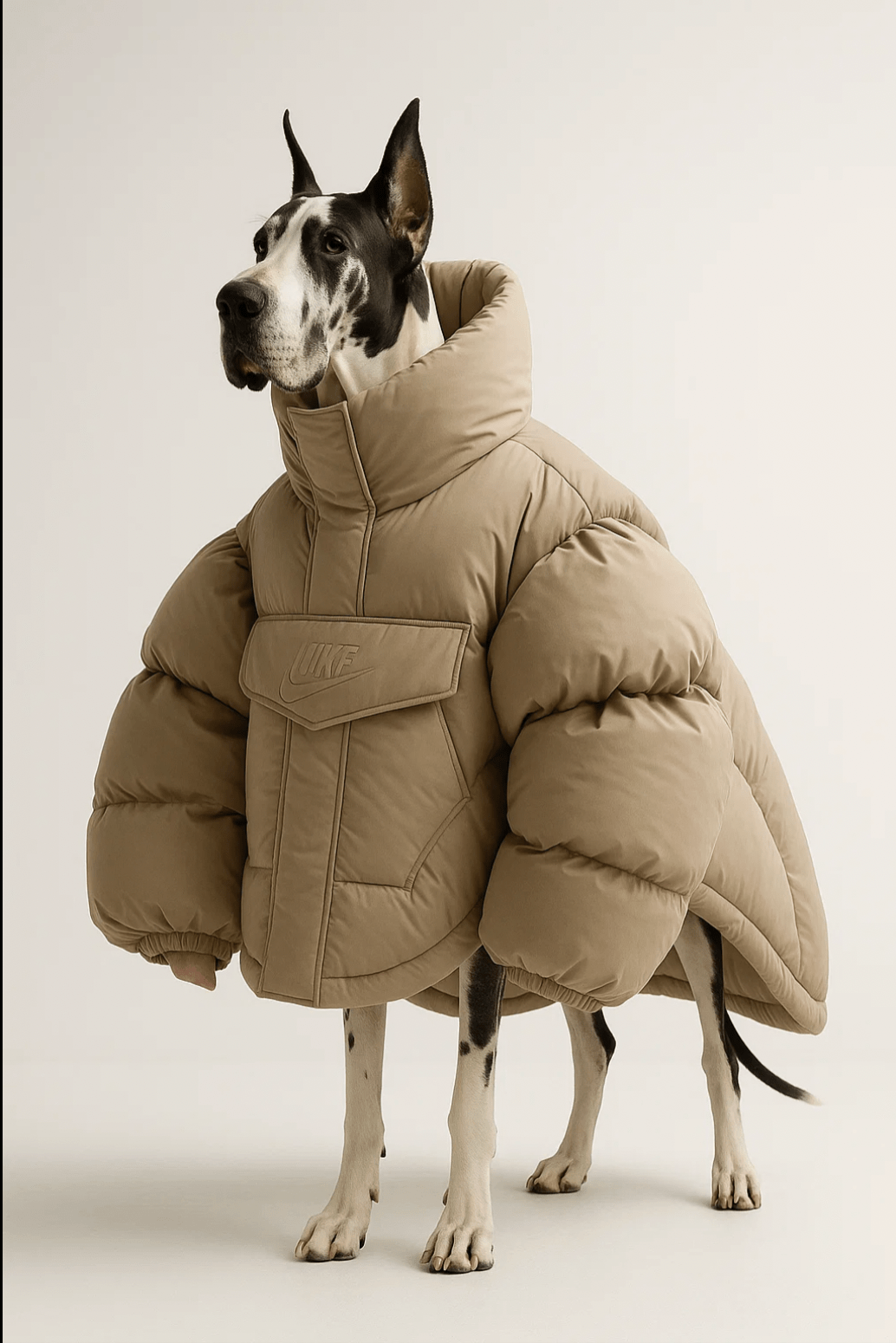

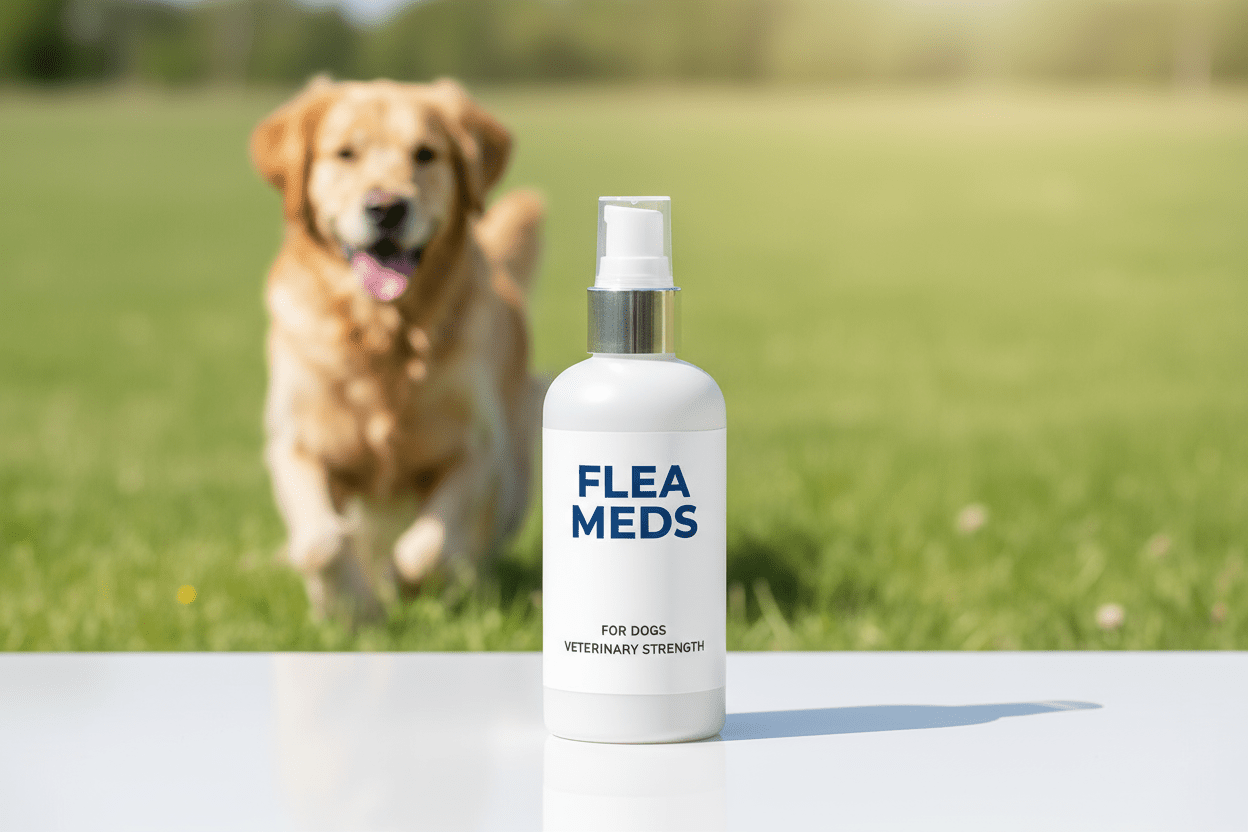
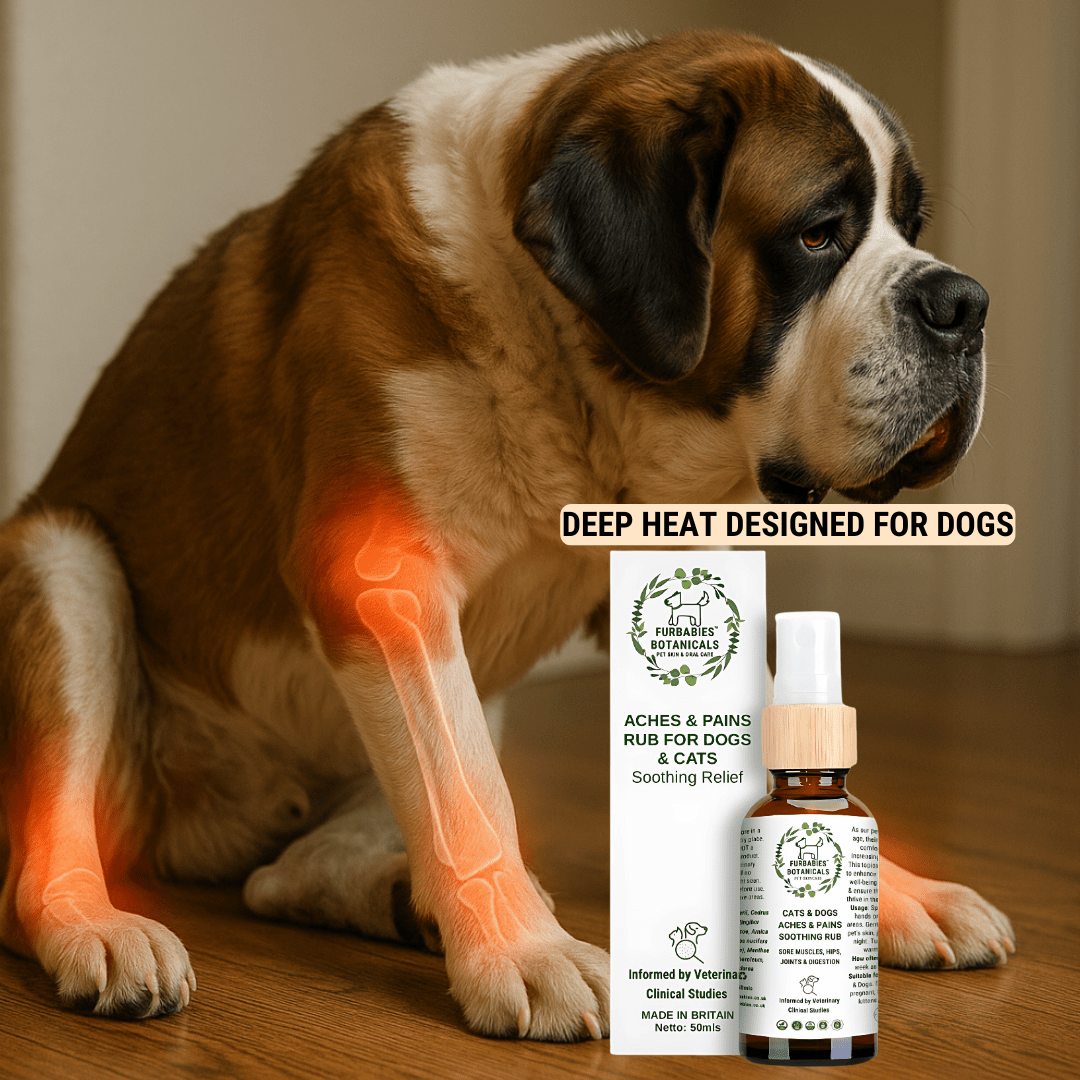

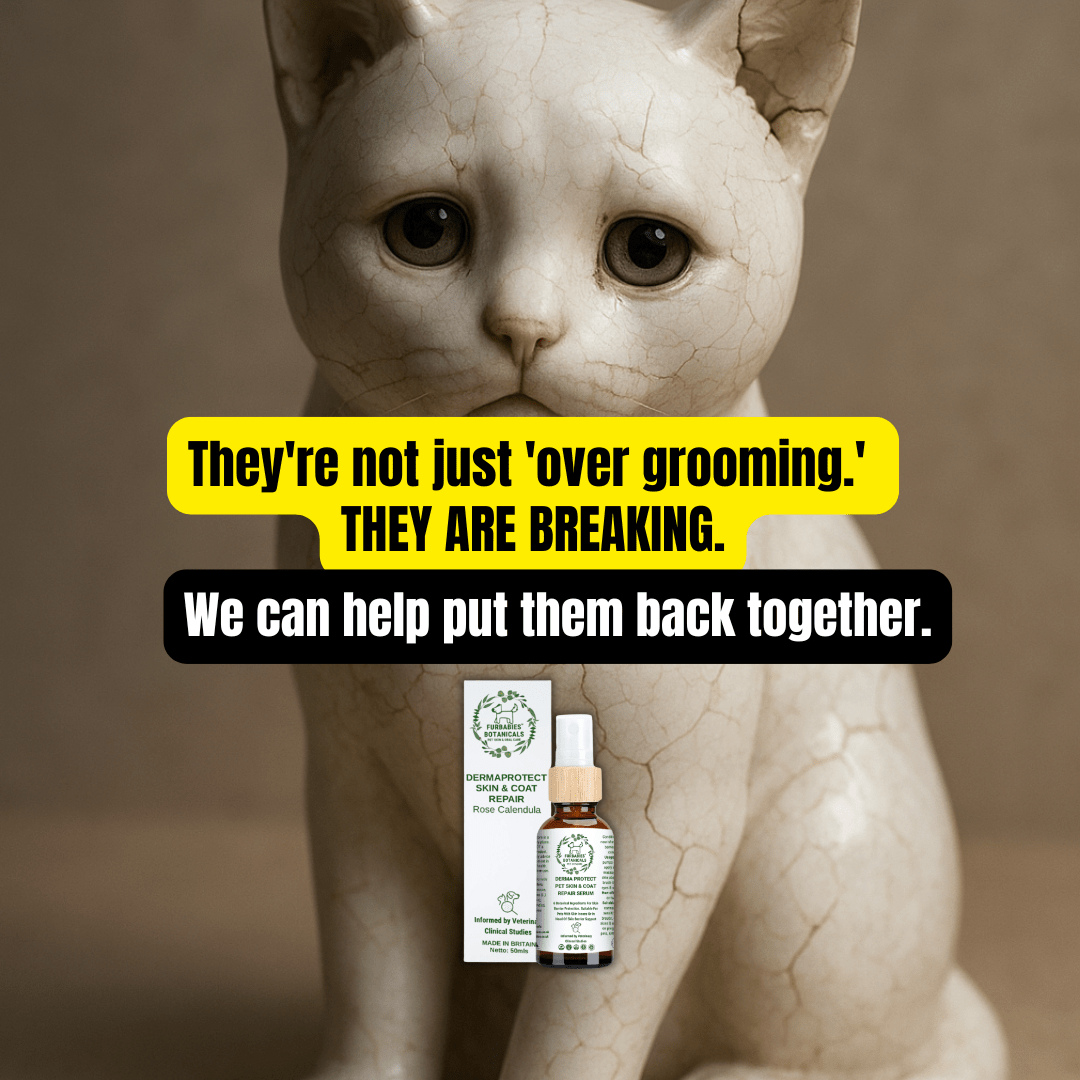
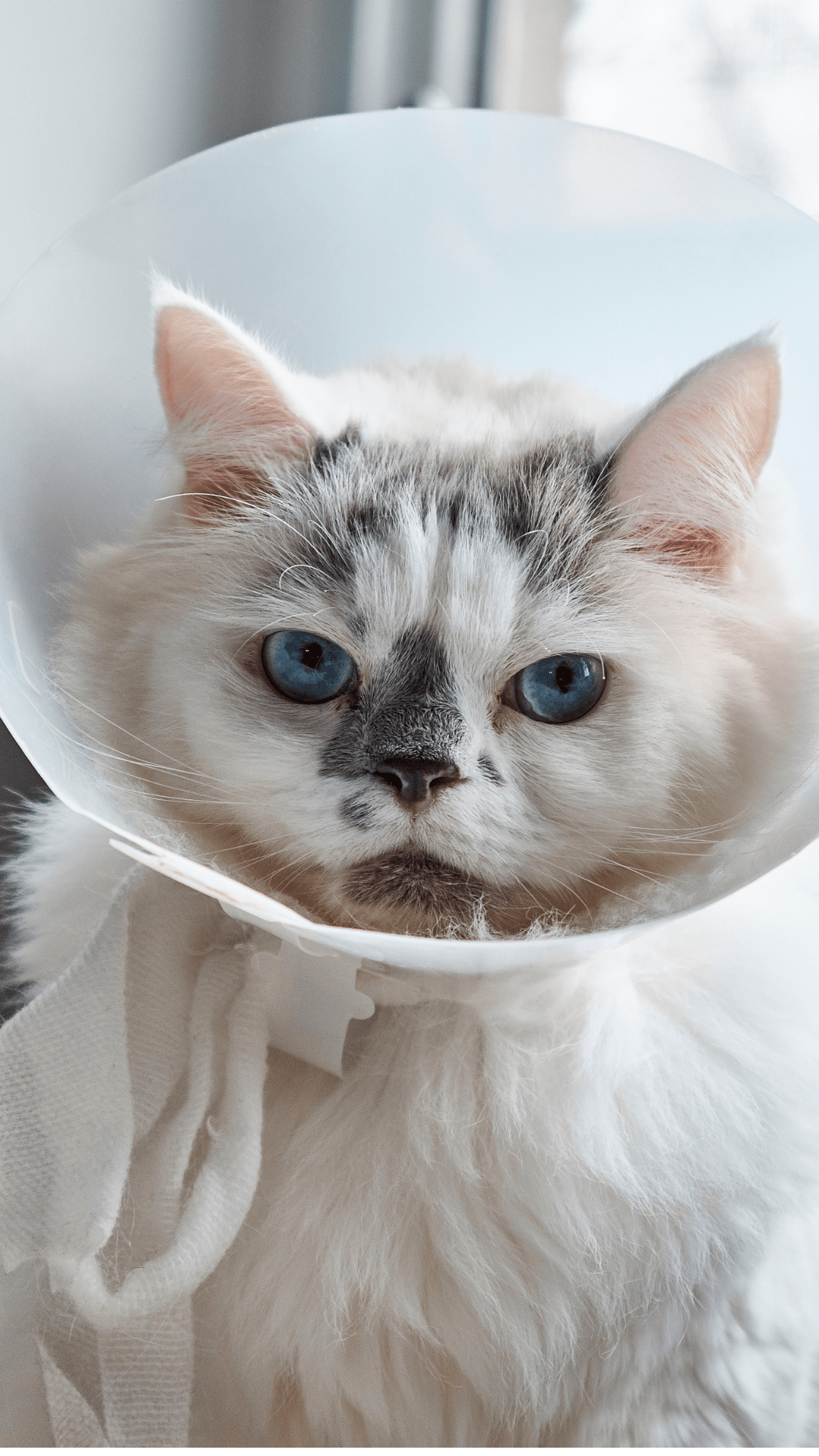
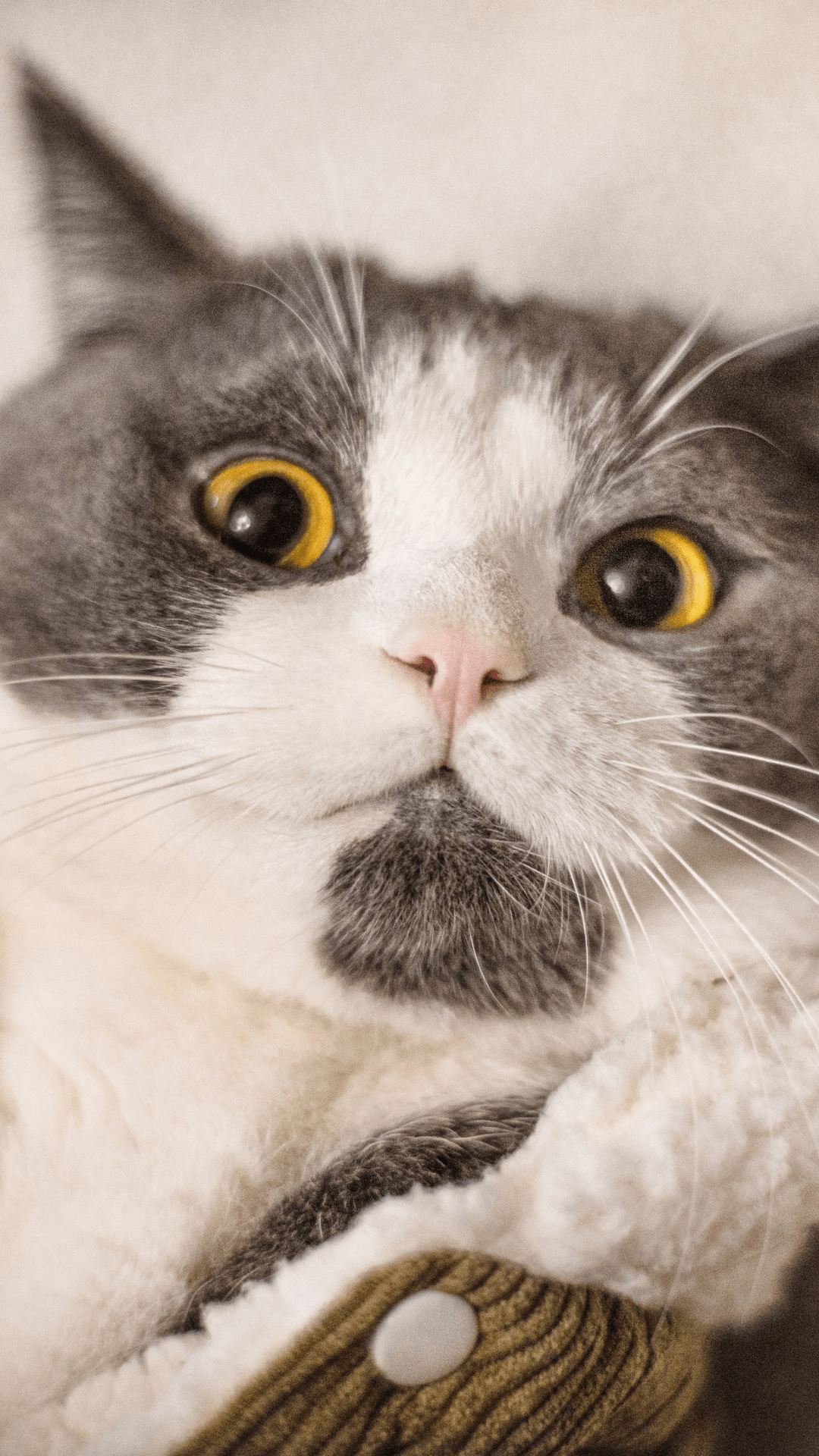

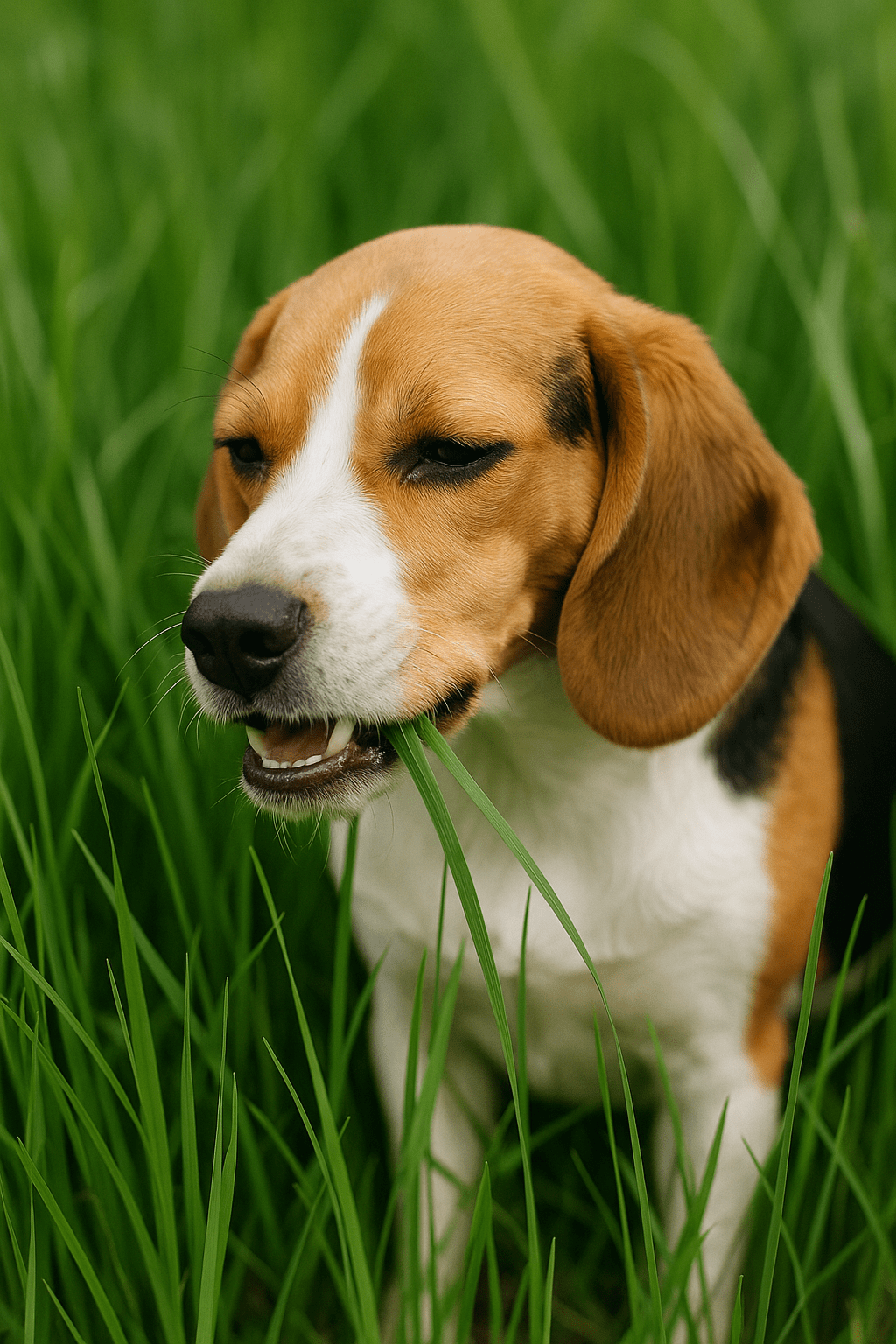
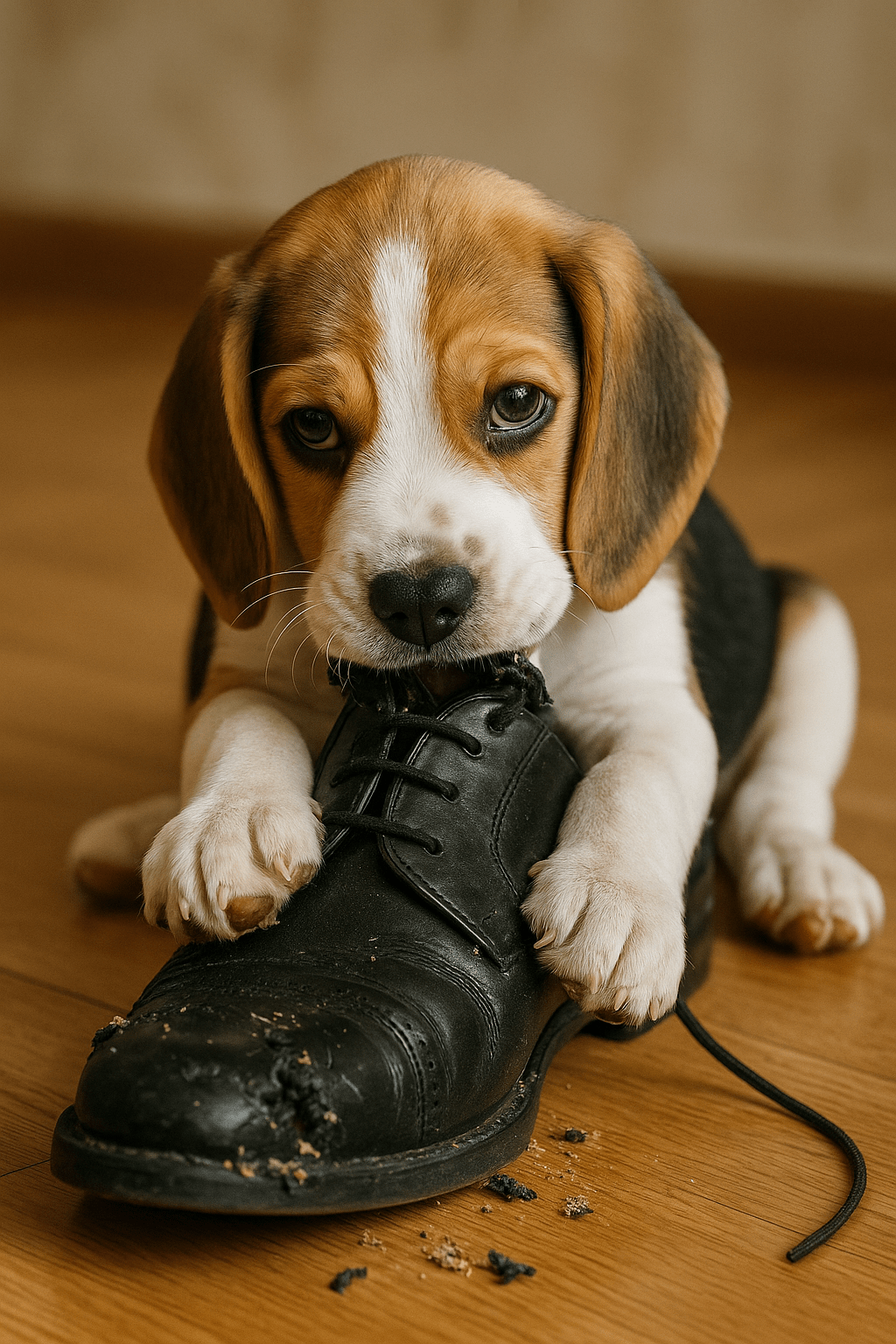
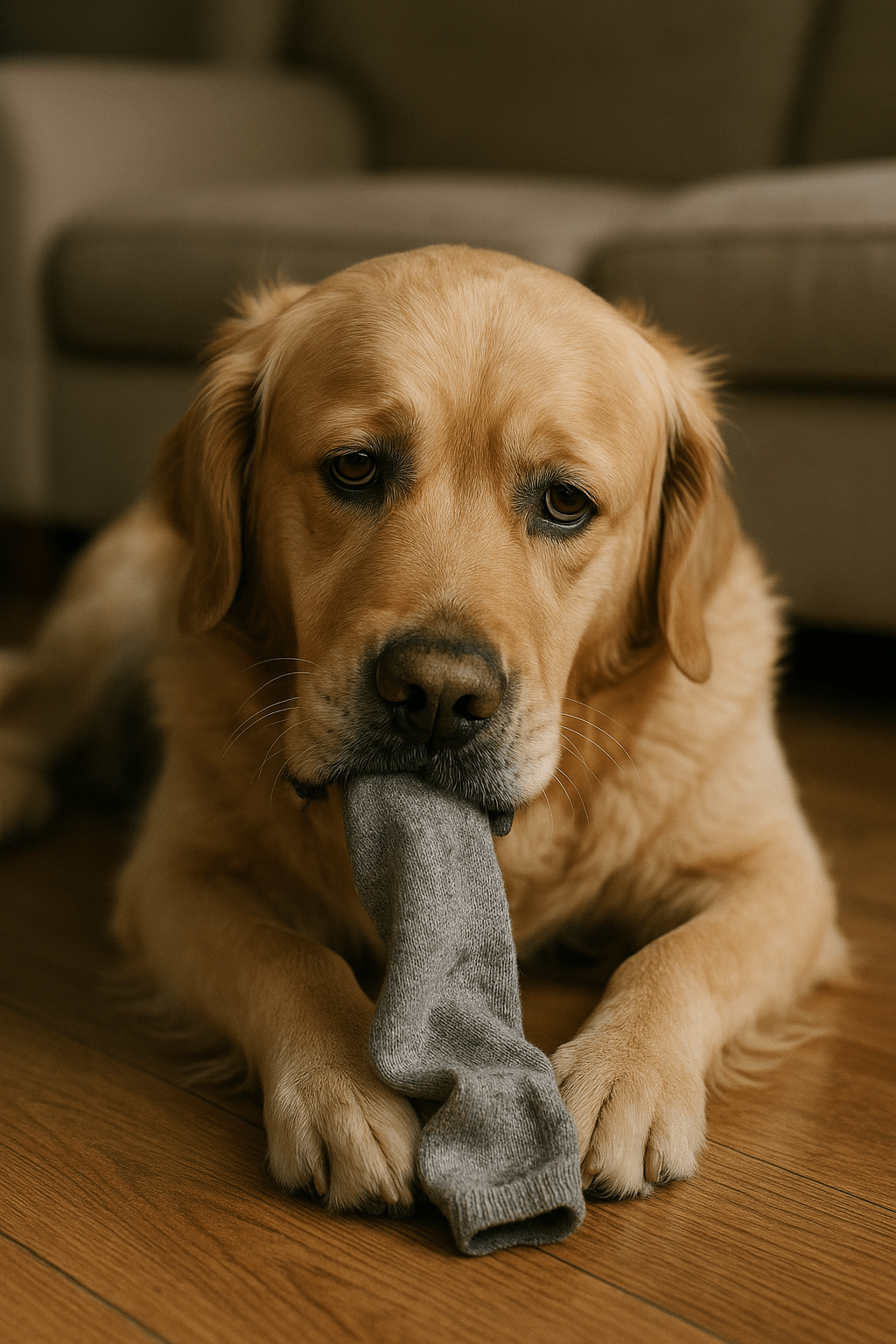
Share:
Aches & Pains Rub for Dogs & Cats
Tips for Grooming Pets with Sensitive Skin